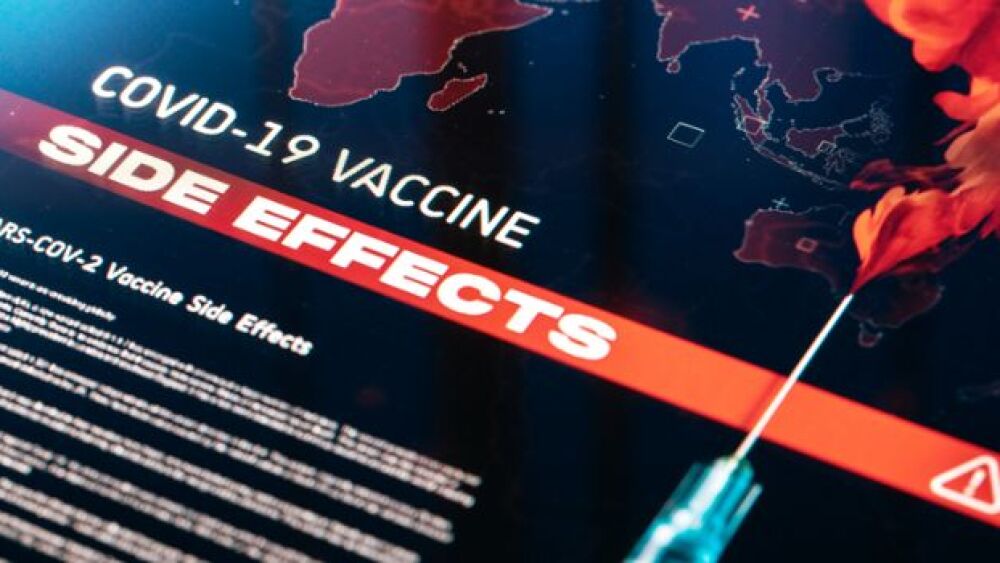The survey of 20,699 Americans found that the unvaccinated – 35% of respondents – didn’t trust that the vaccines were safe or effective.
Unvaccinated individuals are 10 times more likely to contract COVID-19 than vaccinated individuals, according to the Centers for Disease Control and Prevention, yet only 54.8% of the total U.S. population is fully vaccinated against COVID-19 and 74.8% of eligible individuals have had at least one dose. The current rise in COVID-19 cases is, therefore, truly a pandemic of the unvaccinated.
The big question for public health officials is “why?” The effectiveness and safety of COVID-19 vaccines have been proven, with more than 386 million doses administered during the past nearly 11 months. (Remember, the two leading vaccines require two doses.) So, why aren’t more people getting vaccinated?
The answer comes down to a lack of trust, according to the COVID States Project, the largest ongoing national survey tracking people’s opinions and behaviors during the pandemic. It is a joint project of Northeastern University, Harvard University, Rutgers University and Northwestern University.
The survey of 20,699 Americans from all 50 states and the District of Columbia, conducted during June and July, found that the unvaccinated – 35% of respondents – didn’t trust that the vaccines were safe or effective. Specific concerns included the risk of side effects – notably, blood clots or heart inflammation, and allergic reactions to prior vaccines. The risk of side-effects was listed by 90% of unvaccinated individuals as the top reason they were not vaccinated. Approximately one-third said they were afraid of catching COVID from the vaccine itself.
Another frequent concern was that the vaccine had been developed too quickly. As one individual said, responding to an open-ended question, “In 10 years, lawyers are going to be saying, ‘if you had the COVID vaccine, call lawyers at 1-800…. (You) can’t cure the common cold but you can come up with a vaccine in months.” Another said, “I don’t think it’s been tested long enough to determine the long-term safety of it.” Some cited the Johnson & Johnson vaccine as an example. It was approved and then halted while the company investigated serious adverse events.
Whom to trust is an issue. When it came to pharmaceutical companies, 31% trusted them “a lot,” while 20% trusted them “not too much (15%) or not at all (5%).” Even vaccinated individuals were skeptical, as the survey reported that only 14% trusted pharma companies a lot “to do the right thing” to handle the COVID-19 pandemic, while 48% were wary. The White House, however, was trusted even less, if only by a few percentage points.
The most trusted sources regarding COVID-19 were hospitals and physicians, cited by 92% of respondents. Some 86% trusted scientists and researchers, but far fewer trusted the leading COVID-19 communicators. For example, only 66% trusted Anthony Fauci (director of the National Institute of Allergy and Infectious Diseases), 63% trusted the White House, 45% trusted the news media and 33% trusted social media. Each of those categories declined slightly from a previous survey conducted in April.
As one respondent pointed out, “there have been so many times we all heard the CDC, WHO, (and) Fauci say, ‘we were wrong,’ and have adjusted…the guidelines. No one mentions that we were told an N95 mask is the only protection, and now everyone is wearing masks that are completely useless in halting the spread.”
Exacerbating that fear is an underlying distrust of the institutions vouching for the safety and efficacy of the vaccines – the U.S. Food and Drug Administration, the CDC and the state and federal government. Pointedly, one said, “I won’t do something that the government is pushing so hard, in ridiculous ways (using celebrities, financial incentives). I won’t do something that involves threats by the government if I don’t comply (vaccine ‘passports’).”
Another alluded to a history of abuse in the healthcare system. “I do not trust the government as a Black woman. They are pushing a little too hard for people to take this when other diseases are treated as cash cows. This is highly suspicious to me.” Others alluded to the government advocating for a vaccine that at the time of the survey had not yet been FDA-approved.
According to the study’s lead author, Katherine Ognyanova, associate professor of communication at Rutgers’ School of Communication and Information, “lack of trust is a more important challenge at this point than the remaining logistic problems that people experience.”
Uncertainty and distrust were intertwined themes throughout the survey. In closed questions of the 1,205 survey participants who had not yet been vaccinated, 35% perceived the risk from COVID-19 to be overstated and equated it to the seasonal flu. Additionally, 24% were concerned about the risks associated with the vaccine itself and 15% said they didn’t trust the institutions associated with the vaccine. Another 12% saw little benefit to being vaccinated.
The word individuals used most often to explain why they were unvaccinated was “trust” – as in lack thereof. The second-most used term was “side effect,” showing real concern about the efficacy and safety of the vaccine. For respondents who were vaccinated, the most-used word was “protect.” For that group, the word “trust” barely appeared. The second most-used word for the vaccinated individuals was “family.” The researchers considered the differences in the word cloud striking.
Economic and logistic factors played more modest roles among the unvaccinated. Of those who were not yet vaccinated but were willing, 17% were concerned about being able to take time off work if there were side effects. The same percentage was concerned about out-of-pocket costs. Logistical hurdles – difficulty traveling to a vaccination site and the inability to take time off from work – concerned 11% and 9% respectively.
Understanding the reasons behind vaccine hesitancy is the first step in addressing them. Only then can Americans be persuaded to vaccinate themselves against this viral disease the country can begin to approach herd immunity.






